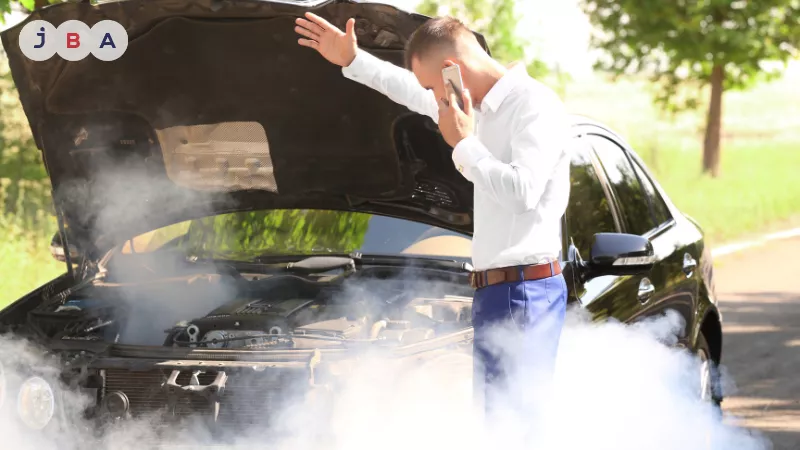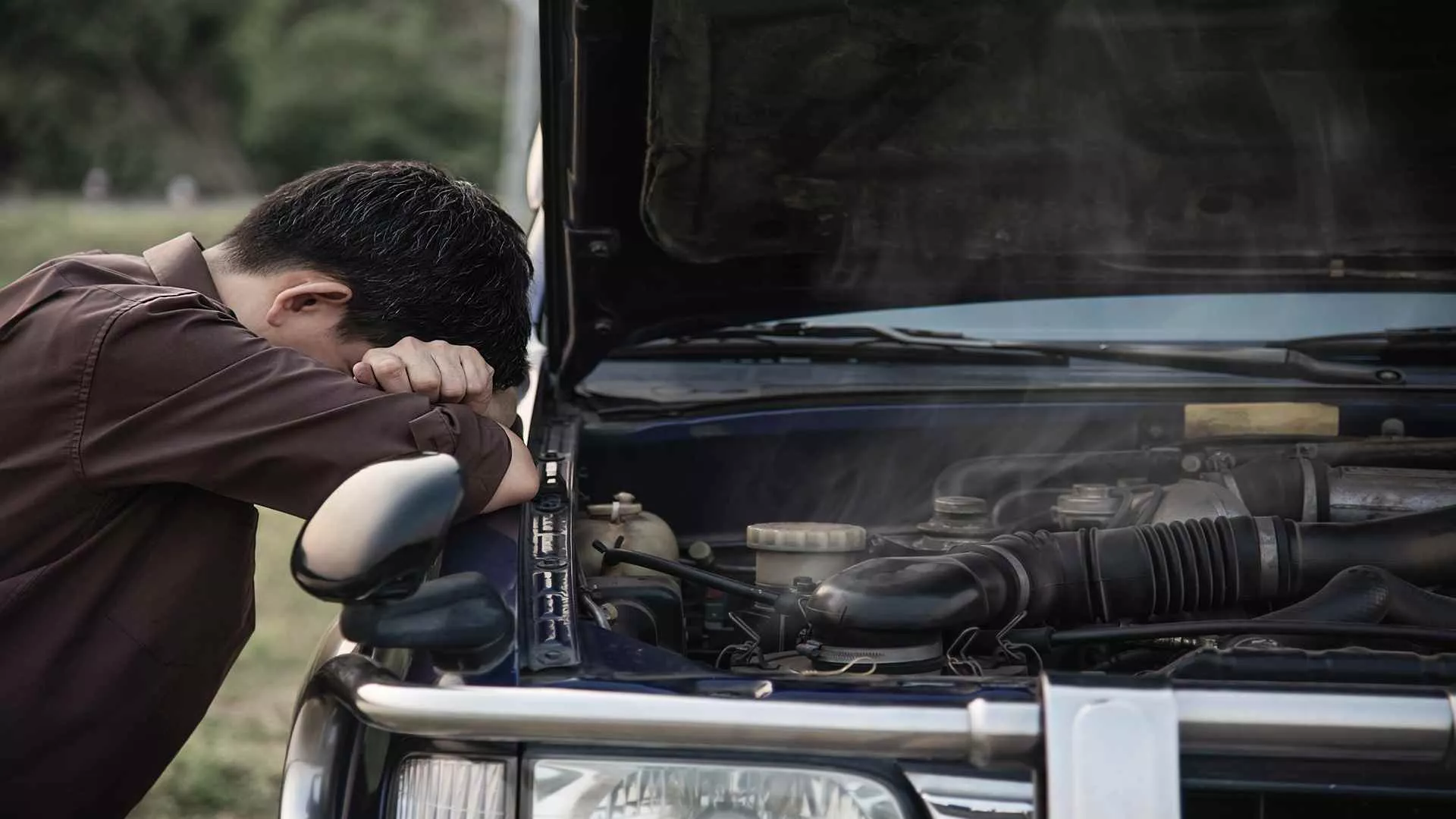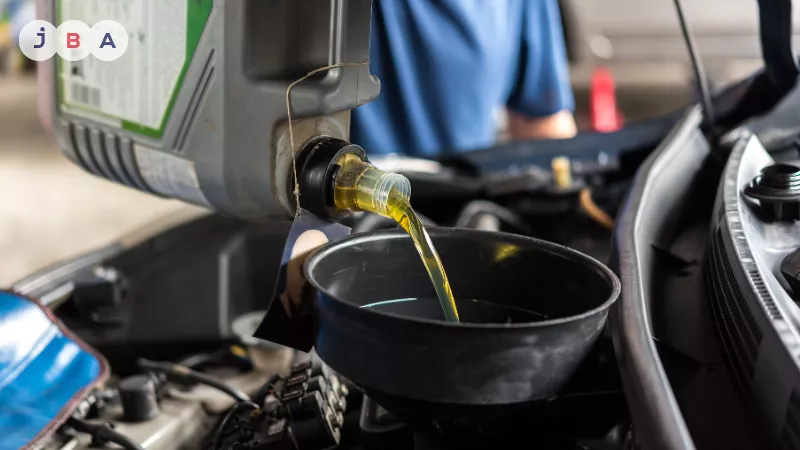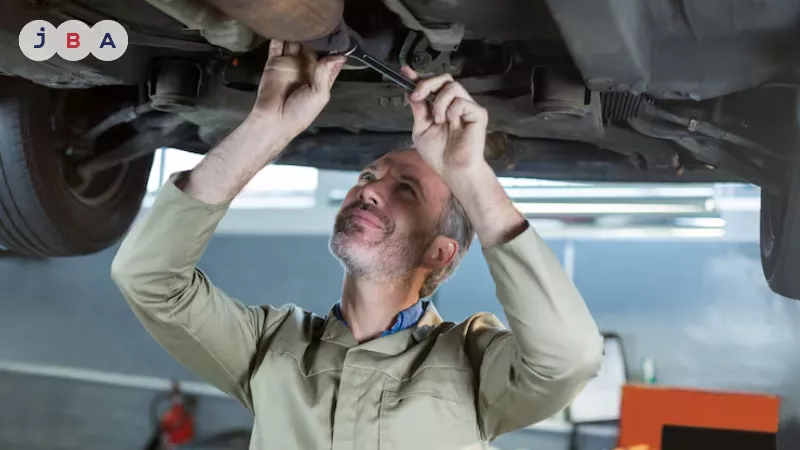- Participate Online Auction
- login
- Register Auction
-
JBA IndonesiaBantuan & Panduan

There are several causes of car overheating that you need to understand so you can prevent and handle this problem properly. An engine running at excessively high temperatures can trigger serious issues such as reduced performance, damaged components, or even sudden breakdowns on the road. In fact, there have been many cases of cars catching fire due to uncontrolled engine temperatures caused by untreated overheating.
That’s why, in this article, we will explain the various factors that cause cars to overheat, along with practical solutions to handle them. Here’s the full explanation for you:
The radiator functions as the main component of the car’s cooling system. If it becomes damaged or develops a leak, coolant circulation will be disrupted, preventing engine heat from being released effectively. The solution is to check the radiator immediately, patch small leaks if possible, or replace it with a new one so the cooling system can work optimally again.
The thermostat regulates coolant flow based on engine temperature. If it gets stuck in a closed position, the coolant won’t circulate to the radiator, causing the engine to heat up quickly. The solution is to take the car to a repair shop for inspection, as a faulty thermostat usually needs replacement so that coolant flow returns to normal.
Coolant is crucial for keeping the engine temperature stable. A shortage of coolant, whether due to leaks or poor maintenance, makes the engine overheat faster. The solution is to regularly check the reservoir tank, refill coolant as needed, and avoid using only plain water since it can damage the cooling system.
Another cause of car overheating is a malfunctioning radiator fan. If the fan doesn’t work, cooling efficiency will drop significantly. The solution is to inspect the fan motor, relay, or fuse, then repair or replace any faulty components.
Engine oil not only lubricates but also helps absorb heat. Dirty or degraded oil increases friction between components, making the engine heat up more quickly. The solution is to change the oil regularly according to the manufacturer’s recommendations. Also, make sure to use oil with the right specifications.
During long trips, the engine is forced to run for extended periods under constant load. This condition makes the engine temperature rise faster compared to regular daily use. If you encounter this situation, immediately turn off the engine to let the temperature drop and open the hood so the heat can escape more quickly. Once the temperature goes down, continue the trip at a steady speed and avoid pushing the engine too hard.
A weak or poorly maintained cooling system often cannot keep the engine temperature stable during long-distance use. To handle this, once the engine has cooled down, check the coolant level in the reservoir. If it’s low, add coolant. However, in emergency situations, you can use clean water as a temporary substitute to keep the engine running.
Remember, using water is only a temporary solution since it doesn’t contain protective additives like coolant. Be sure to take the car to the nearest repair shop for further inspection and proper coolant replacement.
Another cause of car overheating is excessive load. Carrying too many passengers and heavy cargo automatically increases the engine’s workload. This extra burden makes the engine heat up faster, especially on long trips.
If the car starts to overheat due to excessive load, reduce the engine’s workload by turning off the AC or stopping briefly to let the engine cool down. If possible, reduce the cargo weight so the engine doesn’t have to work too hard.
Challenging conditions such as long uphill roads or traffic congestion, combined with hot weather, can make the cooling system work extra hard. As a result, the engine temperature rises more easily. The solution is to use a low gear when driving uphill to avoid straining the engine, turn off the AC if the engine begins to overheat, and keep a safe distance in traffic so the engine can maintain a more stable rhythm.

Sumber: freepik.com
When the AC is on, there is usually an auxiliary cooling fan that helps release heat from the condenser. If this fan is damaged or not working, heat dissipation is not optimal, causing the engine temperature to rise drastically.
To fix this, check the condition of the auxiliary fan and whether the electric motor is still functioning. If it is dead, replace or repair it immediately so the cooling system can work properly again.
The condenser functions to release heat from the AC refrigerant. If its surface is covered with dirt or dust, heat dissipation will not be optimal, which also makes the engine temperature rise.
If this happens, clean the condenser using a compressed air spray or low-pressure water. For stubborn dirt, have it cleaned at a workshop to avoid damaging the condenser fins.
Another cause of car overheating is the additional load from the AC compressor. Keep in mind that the AC compressor draws power directly from the engine. When the AC is on, the engine’s workload automatically increases, which can make the engine heat up faster.
If the car feels heavy and the temperature starts to rise, reduce AC usage immediately, especially in traffic or when going uphill. A long-term solution is to perform regular AC and engine maintenance to keep performance balanced.
Overheating can also occur if airflow to the radiator is obstructed, for example by dirt, plastic, or debris stuck to the front grill. When the AC is on, the radiator needs greater airflow to keep the engine temperature stable.
To fix this, turn off the AC for a while, then check the grill or front radiator area. Remove any blockage so air circulation returns to normal. If the radiator is too dirty, perform flushing or thorough cleaning at a workshop.
That’s our explanation of the causes of car overheating. By understanding them, you can maintain your vehicle’s performance and prevent more serious damage.
For those of you looking for a used car, JBA private auction house is the right place. Through a safe and transparent car auction system, available both online and offline, you can find a wide selection of cars to meet your needs. For more information or questions about JBA auctions, please contact us via WhatsApp at +62-817-0993-078.

There are several...

Affordable sedans priced...

The function of...
